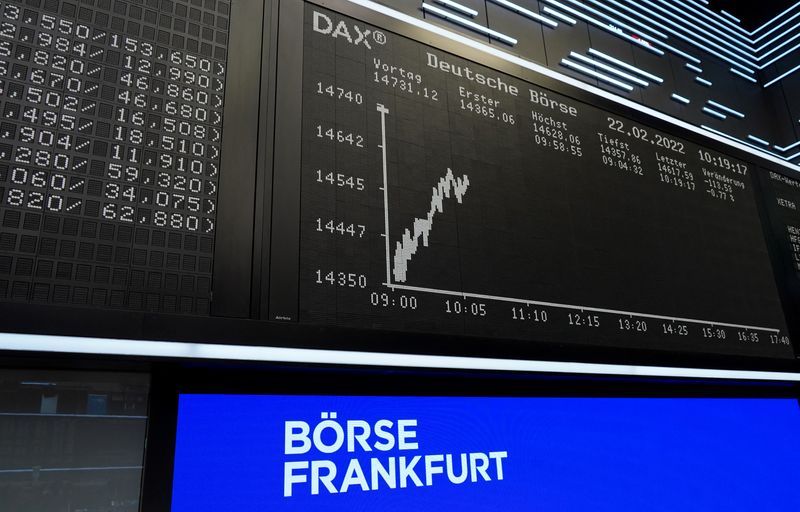This post was originally published on this site

At 03:45 ET (07:45 GMT), the DAX index in Germany traded 0.2% higher and the FTSE 100 in the U.K. climbed 0.2%, while the CAC 40 in France traded largely unchanged.
Investors have traded in a cautious manner Tuesday, with data showing that the U.K. unemployment rate unexpectedly rose to 3.9% in March while pay growth, which has been fueling inflation, remained strong by historical standards.
The European Commission on Monday lifted its gross domestic product estimate higher for this year, now forecasting 1% growth, up from a previous 0.8% estimate.
However, it also raised its forecasts for inflation for the euro area to 5.8% this year and 2.8% in 2024, expecting the European Central Bank to continue with rate hikes, potentially adding to growth concerns.
The preliminary estimate of the euro zone’s first quarter gross domestic product is scheduled to be released later in the session, and is expected to show the region barely grew in the opening three months of the year.
The German ZEW economic sentiment index for May is also due later in the session and will provide clues about the economic health of the euro zone’s largest economy.
Earlier Tuesday, data showed that China’s post-COVID economic rebound was slowing, a negative for many European companies which export to this usually vibrant market.
Adding to these growth concerns is the political uncertainty in Turkey as well as the drawn-out U.S. debt ceiling debate.
In the corporate sector, Vodafone (LON:VOD) stock fell 3.5% after the U.K.-based telecoms group announced plans to cut 11,000 jobs over three years as it forecast a hefty drop in free cash flow this year.
Oil prices rose Tuesday, boosted by U.S. plans to refill its heavily-depleted strategic reserves, overshadowing the weak Chinese economic data.
The U.S. Department of Energy said on Monday it would buy 3 million barrels of crude oil for the Strategic Petroleum Reserve for delivery in August, and asked that offers be submitted by May 31.
The move comes after the Biden administration drew the SPR to its lowest level since 1983 over the past year in a bid to bring down record-high fuel prices spurred by the Russia-Ukraine conflict.
By 03:45 ET, U.S. crude futures traded 0.2% higher at $71.25 a barrel, while the Brent contract climbed 0.2% to $75.41.
Additionally, gold futures fell 0.5% to $2,012.80/oz, while EUR/USD traded 0.2% higher at 1.0890.

